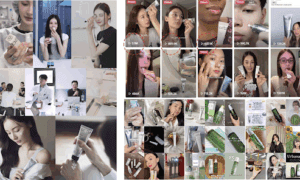As we age, our skin’s natural ability to retain moisture and elasticity decreases. Investing in the best anti-aging moisturizer is an essential step in your skincare routine to maintain youthful, radiant skin. This comprehensive guide will walk you through everything you need to know to find the perfect anti-aging moisturizer for your skin type.
Understanding Your Skin Type
Before you can begin searching for the ideal anti-aging skincare product, it’s crucial to know your skin type. This knowledge will help you select a moisturizer that works best for your specific needs.
Identifying Your Skin Type
- Normal skin: Well-balanced and not prone to oiliness or dryness.
- Dry skin: Often feels tight and may have flaky patches or redness.
- Oily skin: Excessive oil production, which can lead to acne and enlarged pores.
- Combination skin: A mix of dry and oily areas, typically with an oily T-zone (forehead, nose, and chin).
- Sensitive skin: Prone to redness, itching, and irritation, often caused by specific ingredients or environmental factors.
Choosing a Moisturizer Based on Skin Type
Once you’ve identified your skin type, you can select a moisturizer that addresses your particular concerns. For example, those with oily skin should opt for a lightweight, oil-free formula, while individuals with dry skin may benefit from a richer, more hydrating moisturizer.
Key Ingredients to Look for in an Anti-Aging Moisturizer
When browsing anti-aging solutions, it’s crucial to pay attention to the ingredients. The following are some of the most effective components to consider when selecting a moisturizer.
Retinoids
Retinoids, derivatives of vitamin A, are powerful anti-aging ingredients that help increase cell turnover, stimulate collagen production, and reduce the appearance of fine lines and wrinkles.
- Retinol: Over-the-counter retinoid that is suitable for most skin types.
- Retinyl palmitate: A gentler option for sensitive skin.
- Tretinoin: A prescription-strength retinoid for more severe signs of aging.
Antioxidants
Antioxidants are essential in anti-aging skincare, as they neutralize free radicals and protect the skin from environmental damage.
- Vitamin C: Brightens the skin and helps reduce hyperpigmentation.
- Vitamin E: Offers protection against UV damage and nourishes the skin.
- Niacinamide: Improves skin elasticity and reduces the appearance of pores.
Peptides
Peptides are short chains of amino acids that help stimulate collagen production and improve skin texture.
- Palmitoyl pentapeptide-4: Stimulates collagen and elastin synthesis, reducing the appearance of wrinkles.
- Acetyl hexapeptide-8: A peptide that mimics the effects of Botox, temporarily relaxing facial muscles and reducing fine lines.
Hyaluronic Acid
Hyaluronic acid is a naturally occurring substance that can hold up to 1,000 times its weight in water, making it an excellent ingredient for hydration and plumping the skin.
Ceramides
Ceramides are lipids that help reinforce the skin’s barrier, preventing moisture loss and maintaining a healthy, youthful appearance.
Alpha Hydroxy Acids
Alpha hydroxy acids (AHAs) are chemical exfoliants that help remove dead skin cells, revealing brighter and smoother skin.
- Glycolic acid: Derived from sugar cane, glycolic acid is a small-molecule AHA that penetrates the skin easily, promoting cell turnover and collagen production.
- Lactic acid: A gentler AHA derived from milk, lactic acid helps exfoliate the skin while also providing hydration.
Importance of SPF Protection
Sun exposure plays a significant role in the aging process, making SPF protection a crucial aspect of your anti-aging skincare routine.
The Role of Sun Exposure in Skin Aging
Ultraviolet (UV) rays from the sun break down collagen and elastin fibers, leading to premature aging, including wrinkles, fine lines, and age spots.
Recommended SPF Levels
Dermatologists recommend using a moisturizer with an SPF of at least 30 for daily use to protect your skin from harmful UV rays.
Choosing a Moisturizer with Broad-Spectrum Protection
Ensure your anti-aging moisturizer has broad-spectrum protection, shielding your skin from both UVA and UVB rays, to minimize the risk of premature aging and skin damage.
Assessing Brand Reputation
When selecting an anti-aging moisturizer, it’s essential to consider the brand’s reputation and trustworthiness.
Importance of Brand Trustworthiness
A reputable brand with a history of delivering effective products is more likely to provide a high-quality anti-aging moisturizer that meets your needs.
Researching Customer Reviews and Testimonials
Look for customer reviews and testimonials to get a sense of how well a product works for others with similar skin concerns.
Considering Professional Recommendations
Seek advice from dermatologists or skincare professionals when choosing a moisturizer to ensure it’s a suitable option for your skin type and concerns.
Tips for Maximizing the Benefits of Your Anti-Aging Moisturizer
To fully enjoy the benefits of your moisturizer, follow these tips for proper usage and a healthy lifestyle.
Proper Application Techniques
- Cleansing your face: Gently cleanse your face before applying moisturizer to remove dirt, oil, and makeup.
- Applying the moisturizer evenly: Apply a pea-sized amount of moisturizer to your face, making sure to distribute it evenly.
- Using upward strokes: Massage the moisturizer into your skin with upward strokes, promoting circulation and reducing the appearance of sagging.
Consistency in Usage
To see the best results, use your anti-aging moisturizer consistently, ideally every morning and evening.
Incorporating a Healthy Lifestyle
- Balanced diet: Consuming a diet rich in fruits, vegetables, lean proteins, and healthy fats promotes overall skin health.
- Regular exercise: Engaging in regular physical activity improves circulation, delivering essential nutrients to your skin.
- Stress management: Practicing stress-reducing activities like yoga or meditation can help minimize stress-related skin issues.
- Adequate sleep: Aim for 7-9 hours of sleep per night to allow your skin to regenerate and repair itself.
Incorporating an anti-aging moisturizer into your skincare routine is an essential step towards maintaining youthful, radiant skin. By understanding your skin type, considering key ingredients, ensuring SPF protection, and assessing brand reputation, you can find the perfect moisturizer to address your unique needs. Don’t forget to follow proper application techniques and maintain a healthy lifestyle to maximize the benefits of your anti-aging skincare routine.



































